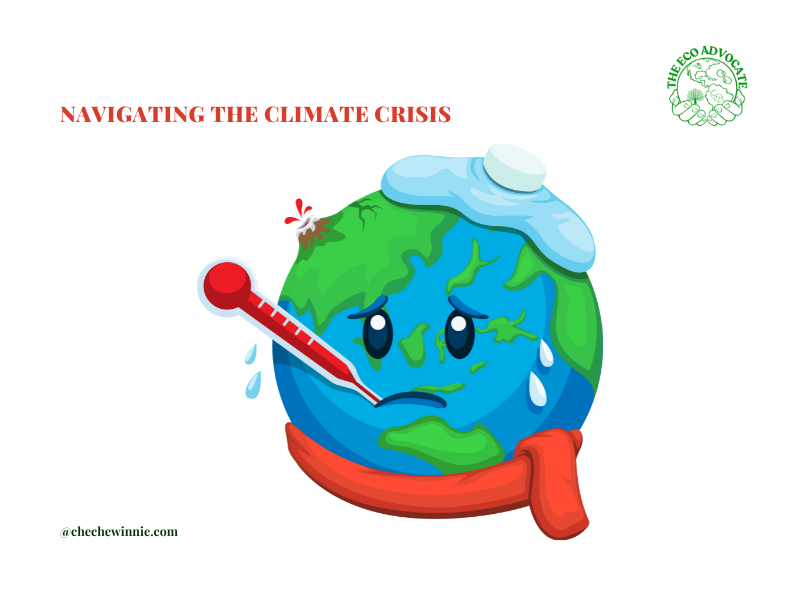In the face of the escalating climate crisis, the world finds itself at a critical juncture. The intricate web of environmental changes, from rising temperatures to extreme weather events, poses a formidable challenge that demands urgent attention.
Let’s delve into the complexities of climate change, examining current challenges and highlighting promising initiatives that offer a glimmer of hope for positive change.
A Global Emergency
Climate change is not just a distant threat; it is an immediate and pervasive crisis affecting every corner of the globe. One of the most visible manifestations is the rise in global temperatures, leading to more frequent and severe heatwaves. Glaciers are melting at an alarming rate, contributing to rising sea levels that pose a direct threat to coastal communities. Extreme weather events, such as droughts, wildfires, and floods, are becoming more frequent and intense, wreaking havoc on ecosystems and human settlements.
Moreover, the impacts of climate change extend beyond the environmental realm. Socioeconomic inequalities are exacerbated as vulnerable communities bear the brunt of the crisis, facing displacement, food insecurity, and health risks. The challenge is not just scientific or environmental; it is a complex interplay of ecological, economic, and social factors that demands a comprehensive and collaborative response.
Promising Initiatives
Amid the gloom and challenges, there are encouraging signs of positive change. Governments, businesses, and communities are increasingly recognizing the need for urgent action and are mobilizing efforts to mitigate and adapt to the impacts of climate change.
Renewable energy stands out as a beacon of hope in the fight against climate change. The transition from fossil fuels to clean, renewable energy sources such as solar and wind power is gaining momentum. Countries around the world are investing in sustainable energy infrastructure, reducing dependence on carbon-intensive practices and paving the way for a more sustainable future.
Afforestation and reforestation initiatives are another crucial aspect of climate action. Forests act as carbon sinks, absorbing and storing large amounts of carbon dioxide. By preserving existing forests and planting new trees, we can mitigate the impacts of climate change and protect biodiversity. Sustainable land management practices also play a vital role in restoring degraded ecosystems and preventing deforestation.
Furthermore, technological innovation is driving the development of climate-friendly solutions. From electric vehicles to carbon capture technologies, innovative approaches are emerging to reduce greenhouse gas emissions and foster a more sustainable way of life. The collaboration between governments, businesses, and research institutions is crucial to accelerating the adoption of these technologies on a global scale.
Actions Needed for Positive Change
While promising initiatives offer hope, addressing the climate crisis requires collective and immediate action. Governments must implement and strengthen policies that promote sustainability and reduce carbon emissions. The private sector has a pivotal role in driving innovation and adopting sustainable practices, guided by a sense of corporate responsibility.
Individuals also play a crucial role in the fight against climate change. Adopting sustainable lifestyles, reducing carbon footprints, and advocating for climate-friendly policies are essential contributions. Education and awareness-raising efforts can empower individuals to make informed choices and foster a global culture of environmental responsibility.
In conclusion, navigating the climate crisis is a multifaceted challenge that demands a comprehensive and collaborative response. From understanding the current challenges to embracing promising initiatives, the path to positive change requires concerted efforts at every level of society. By taking bold and immediate action, we can collectively navigate the complexities of the climate crisis and build a more sustainable and resilient future for generations to come.


Important topic for current generation to be serious of.. Reducing carbon emission itself will solve lot of issues.
Thank you